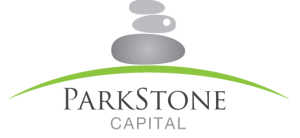Consumer prices inched further downwards and remained on course to touch pre-COVID levels buoyed by declines in the prices of some food items. Data released by the Ghana Statistical Service (GSS) showed that the rate of inflation ended the third quarter of the year declining to 10.4% from 10.5% recorded in August. Year-on-year, the inflation rate rose by 280 basis points from 7.6% recorded over the same period last year.
The drop in the consumer price reading for September represents the second consecutive decline as the inflation rate fell to its lowest in 5 months. The drop in the rate of inflation came on the back of a slower contribution of food items to the total year-on-year inflation after food contributed 47.6% to September’s figures against 47.9% in August and 53.0% in July.
Food and non-alcoholic beverages group inflation declined for the fourth consecutive time to 11.2% in September from 11.4% in August after ‘Fruits and vegetable juices’ posted the biggest month-on-month relative decline from 1.2% in August to 0.9%. Five subgroup items including ‘Vegetables’ at 18.9% recorded rates higher than the group’s average inflation rate. Ten subgroup items including ‘Water’ at -0.8% recorded rates below the group’s average inflation rate.
The non-food and alcoholic beverages category posted its first decline in six months. The rate of inflation on non-food and alcoholic beverages fell marginally from 9.9% in August to 9.8% in September after ‘Insurance and financial services’ and ‘Education services’ posted significant decreases. ‘Housing, water, electricity & gas’ at 20.3% and ‘Transport’ at 10.1% were the only subgroup items with rates higher than the group’s average rate. ‘Insurance and financial services’ at 2.0% was among ten others that recorded rates below the group’s inflation figure.
At the regional level, the Greater Accra region recorded the highest inflation with a rate of 14.3% while the Upper West region recorded the lowest at a rate of 1.3%. Inflation on locally produced goods declined from 12.6% to 12.3% whilst that on imported goods rose from 4.8% to 5.1%.
Signs of a slowdown in consumer prices are unlikely to push the Monetary Policy Committee of the central bank to resume its policy easing cycles as the bank ought to continue to take a cautious stance ahead of the December elections.





![Treasury Rates [September 16, 2024]](https://theparkstone.com/wp-content/uploads/2019/11/edrecon_00-12-scaled-768x480.jpg)
![Treasury Rates [January 15, 2024]](https://theparkstone.com/wp-content/uploads/2019/11/eTreasury-bills-notes-and-bonds-scaled-768x480.jpg)

